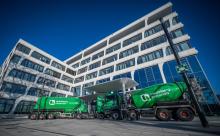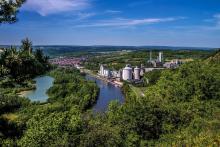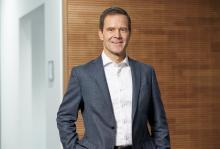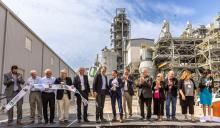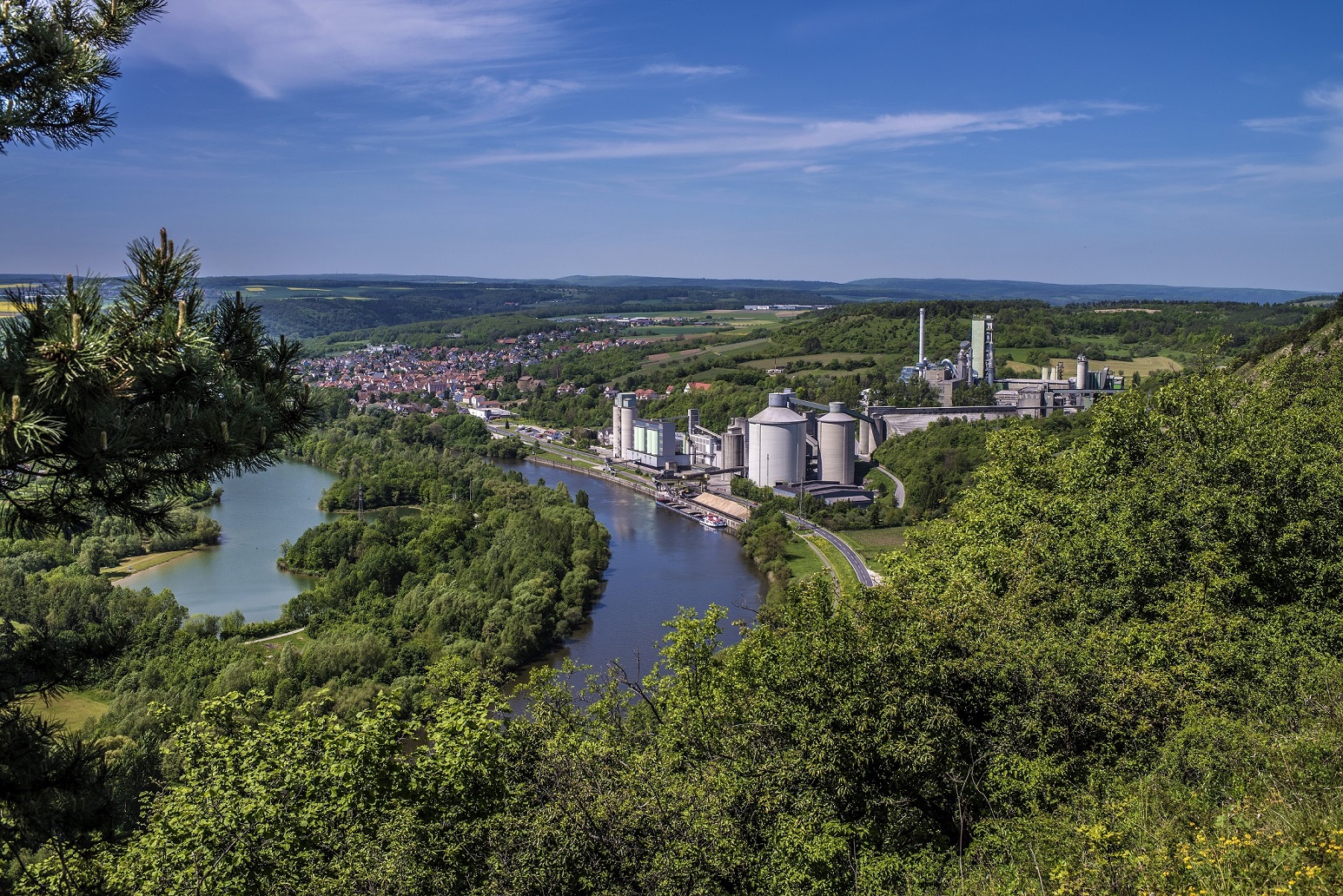
The German building materials giant further intensified its sustainability activities, with its claimed most ambitious climate targets in the sector validated by SBTi. The Group also launched additional carbon capture projects, expanding its circular economy.
Heidelberg Materials has also upgraded its 2023 trading outlook, with revenue growth from current operations now expected to be between €2.50bn and €2.65bn (previously: €2.35bn and €2.65bn).
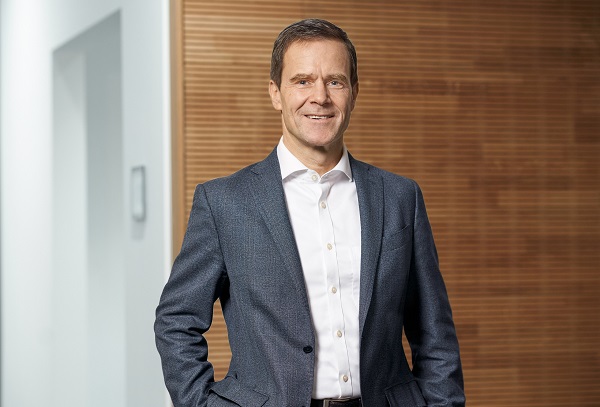
Dr Dominik von Achten, chairman of the Group managing board, said: "We have had a good start into the year. In the first quarter, we were able to achieve a strong increase in revenue and results. Our operations in North America and Europe made a particular contribution to this success –we can keep building on this during the rest of the year. We are optimistic about the full year 2023.
"The Science Based Targets initiative (SBTi) has validated our ambitious 2030 climate targets and recognised them as science-based, in line with the Paris 1.5°C target. We are making good progress with our extensive sustainability activities. In terms of carbon capture, utilisation, and storage, we are further expanding our pioneering role in the industry with several industrial-scale projects. Additionally, we are consistently driving forward the circular economy with various acquisitions of leading recycling companies. We already offer our customers a wide range of climate-friendly products. And we will continue to expand this range step by step."
In the first quarter, Heidelberg Materials' sales volumes declined due to the economic downturn linked to lower construction activity, especially in residential construction, due to inflation and increased financing costs.
Revenue rose significantly by 10.6% compared to the previous year to €4,896mn (last year: €4,427mn). Excluding scope of consolidation and exchange rate effects, the growth amounted to 13.4%. In particular, price adjustments in all Group areas contributed to the revenue growth. Exchange rate effects of €109 million harmed revenue.
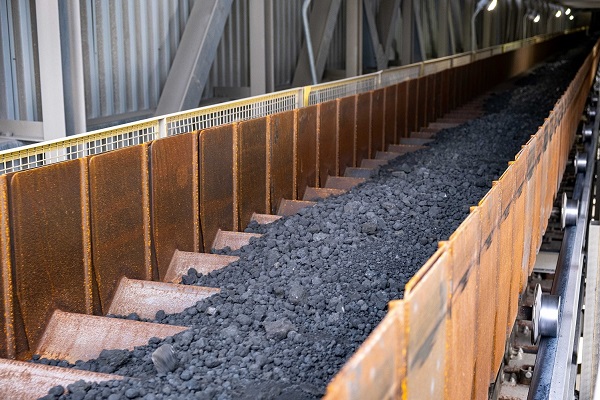
The result from current operations before depreciation and amortisation rose significantly by €163mn, i.e. 41.3%, to €557mn (previous year: €394mn) (+€182mn on a like-for-like basis). The result from current operations also recorded strong growth of €168n to €258mn (previous year: €91mn). Excluding scope of consolidation and exchange rate effects, the increase amounted to €187mn. In addition to revenue growth, continuous cost management contributed to the positive development of results.
In February 2023, Heidelberg Materials' CO₂ reduction targets for 2030 were reviewed by the SBTi within its new 1.5°C framework and recognised as science-based after a comprehensive validation process following the strict SBTi criteria. In addition to specific reduction targets for gross Scope 1 and 2 GHG emissions by 2030, the company also added a Scope 3 reduction target.
Heidelberg Materials is consistently expanding its pioneering global role in the cement industry regarding carbon capture, utilisation, and storage (CCUS). Since the beginning of the year, several CCUS projects have been launched or advanced to the next project phase:
• As early as 2024, the world's first industrial-scale CO₂ capture plant in the cement industry is scheduled to operate in Brevik, Norway.
• Heidelberg Materials and Linde are using CO₂ as a raw material for the food and chemical industries and are building the world's first large-scale CCU plant at the cement plant in Lengfurt, Germany. Capture activity is scheduled to start in 2025.
• Heidelberg Materials and the Canadian government are partnering to build the world's first net-zero carbon capture and storage plant in the cement industry in Edmonton, Canada. The plant is expected to go into operation in 2026.
• The CCUS project in Padeswood, United Kingdom, has qualified for funding from the UK Department for Energy Security and Net Zero, thus entering the next phase of the selection process.
• The European Union is funding the Heidelberg Materials CCUS project in Devnya, Bulgaria, with €190 million through its Innovation Fund.
• Preparations for constructing a new type of hybrid carbon capture plant at the Antoing cement plant in Belgium have enabled Heidelberg Materials to expand its portfolio of carbon capture initiatives since the beginning of the year. The CCUS facilities in Padeswood, Devnya, and Antoing are scheduled to be commissioned in 2028.
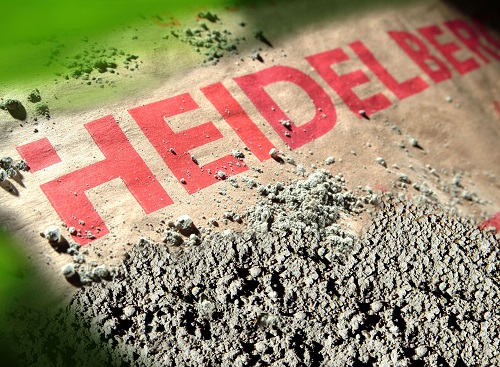
With the acquisition of the SER Group, a leading integrated company in the demolition and building materials recycling business areas, Heidelberg Materials is also expanding its circularity offering in Germany. Promoting the circular economy through the increased use of by-products and recycled materials from other industries is an essential part of the climate strategy. The acquisition of the SEFA Group, the largest fly ash recycling company in the USA, will significantly reduce the CO₂ intensity of Heidelberg Materials in the USA.
With the sustainability-linked bond issued in January 2023, Heidelberg Materials also links financing to its ambitious climate targets.
Heidelberg Materials still expects that the good order situation for infrastructure projects and certain areas of commercial construction will largely offset the decline in residential construction. Energy prices have eased slightly in the first months of 2023 but remain volatile and well above previous years.
Against this background, the company upgrades its outlook for the 2023 financial year. Heidelberg Materials expects a moderate increase in revenue (excluding scope of consolidation and exchange rate effects) compared with the previous year and now anticipates a result from current operations of between €2.50bn and €2.65bn (outlook Annual Report 2022: between €2.35bn and €2.65bn).
An overview of Heidelberg Materials' financial figures for the first quarter of 2023 can be found in the Business Figures from January to March 2023 on the Group's website: www.heidelbergmaterials.com, under Investor Relations/Reports and Reports and Presentations.



